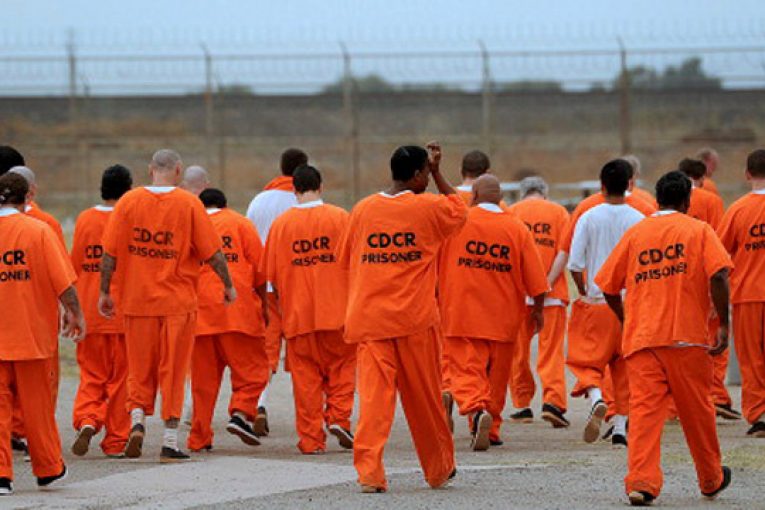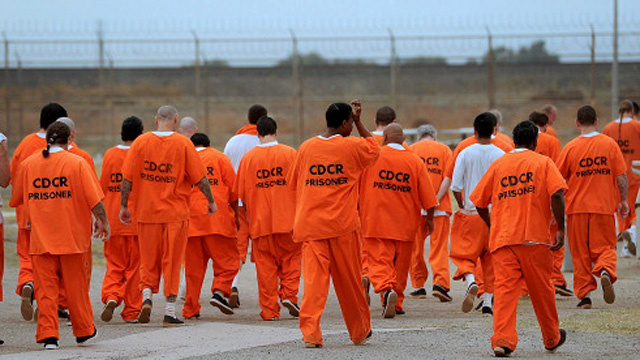

By Max Kennedy
CALIFORNIA – The California Department of Corrections and Rehabilitation (CDCR) announced last week the deactivation of the California Correctional Center (CCC), a prison currently housing more than 2,000 people in Susanville, CA. The facility will be deactivated by June, 2022.
But critics said it’s not a closure but temporary measure.
Californians United for a Responsible Budget (CURB) – a statewide coalition of 70 grassroots organizations – praised the decision while challenging the state Department of Corrections and Rehabilitation (CDCR) to adopt a more comprehensive approach to prison closures and take further action.
“CURB celebrates this moment in California history as we finally begin to close state-owned prisons, and applauds Governor Gavin Newsom’s personal pledge to close two state prisons by 2023,” read a letter published by the organization.
Despite this initial praise, the letter went on to criticize aspects of the deactivation plan and to call on the state to enact additional reforms. Specifically, CURB notes that the prison will not be permanently shuttered and will likely retain some staff and infrastructure.
“This is NOT prison closure,” reads the letter. CURB instead recommends a full closure of CCC and endorses “shutting down at least 10 state-owned prisons by 2025 as a truly bold step toward  accountability and racial justice.”
accountability and racial justice.”
The deactivation of CCC will not lead to shorter sentences or early releases, which CURB also criticized. Instead, people still serving sentences at the time of deactivation will be transferred to other prisons.
“Prison closures must center releases of individuals, not rely on transfers to other prisons,” reads CURB’s letter.
“Californians have been voting and advocating for a shift in our approach to public safety, demanding less reliance on prisons and police.” The letter went on to highlight that other facilities are running above 100 percent capacity and therefore may not be well equipped to house more people.
CURB also responded to the potential loss of jobs resulting from the deactivation, noting a recent article in the Sacramento Bee.
“Prisons are not healthy employment engines for communities,” said Brian Kaneda, Deputy Director of CURB. “They are traumatic, unhealthy places that lead to lasting physical and emotional health impacts for the people that work in these facilities.”
Amber-Rose Howard, Executive Director of CURB, echoed these sentiments and pointed out potential ways to avoid job losses through reinvestment.
“Nobody should be without a job because a prison closes,” said Howard. “We can and must capture that cost savings and create job development that supports community reinvestment. Closing prisons presents an opportunity to transform all communities for the better.”
According to the CDCR, the department “will work with staff on this transition, including possible relocation to other institutions.” The CDCR also estimated the deactivation will save $122 million per year.
In addition to further prison closures, CURB also endorsed broader reforms of the criminal justice system, including repealing “all draconian sentencing,” passing the Racial Justice Act for All (AB 256 Kalra 2021), the RISE Act (SB 483 Allen 2021) and the Sentencing Reform Act (SB 300 Cortese 2021).
 Max Kennedy graduated from Harvard in 2016 with a degree in History. He is an intern with the San Francisco Public Defender and most recently worked as a digital organizer with Joe Biden for President.
Max Kennedy graduated from Harvard in 2016 with a degree in History. He is an intern with the San Francisco Public Defender and most recently worked as a digital organizer with Joe Biden for President.
To sign up for our new newsletter – Everyday Injustice – https://tinyurl.com/yyultcf9
Support our work – to become a sustaining at $5 – $10- $25 per month hit the link: